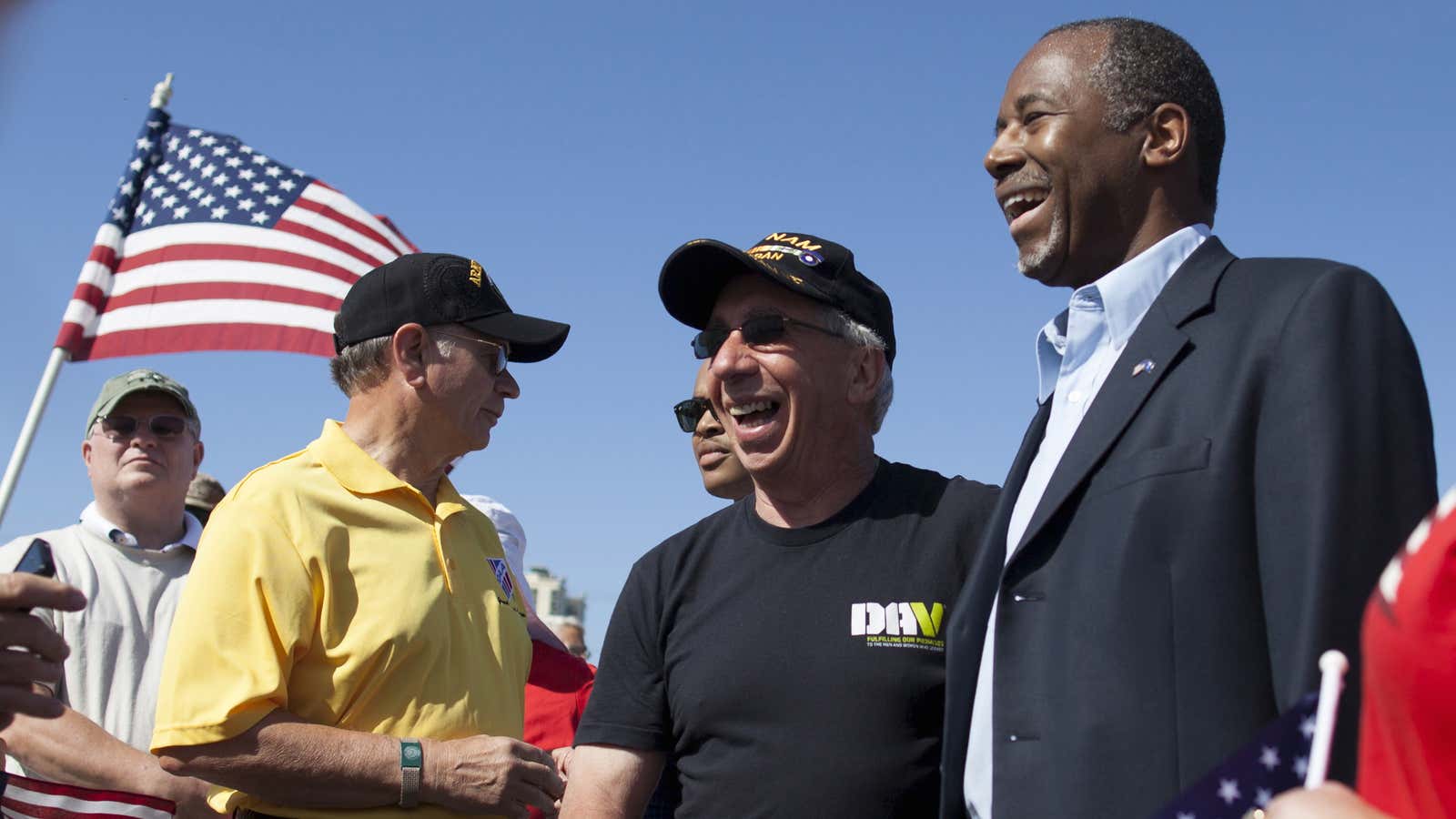Can I make a suggestion? How about we not compare anything to slavery? How about we not compare it to Obamacare. How about we not compare it to the Holocaust. How about we not compare it to minimum wage, How about we not compare it to an unpaid internship. Most importantly, how about we not compare it to happier or simpler times.
Recently, Tony Evans, senior pastor of Oak Cliff Bible Fellowship, one of the leading and largest African American evangelical churches, publicly compared the black family in freedom to the black family in slavery. Evans basically argued that the black family was more united during slavery; it was unclear if he meant before or after the auction block that separated nearly one third of all enslaved families.
Referring to the state of the black American family, Evans said, “The white man is not making you do that. He’s not forcing you into that position. That’s a convenient out. In slavery when we did not have laws on our side, the community on our side, the government on our side, the broader community on our side, our families were a lot stronger. We were a lot more unified and we made a lot more progress. We’re going through regression right now and a lot of that is because of decision-making we are responsible for.” After a tremendous amount of backlash, Evans tried cleaning up or clarifying this rather stunning message. It didn’t help. The damage was done.
Not long ago, famed surgeon Ben Carson—religious pundit, and now presidential candidate—made a similar statement when comparing slavery to Obamacare. Carson rather hyperbolically claimed that the Affordable Healthcare Act was “the worst thing that has happened in this nation since slavery.” I say hyperbolic, because no health care law could possibly compare to the violent rape of enslaved women during slavery, or the kidnapping and forced migration of black bodies. Few remember that it was the Second Middle Passage, the forced migration of slaves from the American South into the even deeper South, that not only broke up enslaved families, but accelerated Andrew Jackson’s battles to lead a Native American genocide through the Indian Removal Act, also known as the Trail of Tears.
Clearly, few people in America actually understand what happened during those 250 years of violent oppression. When I tell my students about the true story of an enslaved woman, Celia, who was raped repeatedly by her master and then killed him in self-defense, they are horrified. But they are even more speechless when I tell them that in a US court of law Celia was deemed “un-rapeable” and sentenced to hanging—but not before she delivered her stillborn baby. For this, I have no comparisons. When I tell my students about Margaret Garner who killed her own children as an act of liberation from the institution of slavery, I have no other comparisons. And when I tell them that a man’s life expectancy was once literally dependent upon the price of cotton, I have no modern-day comparison.
Both Tony Evans and Ben Carson, along with others who speak of personal responsibility and making good choices, are not painting a complete picture. Choice is an interesting circumstance, particularly in the black community. For many African Americans, choice is a manufactured illusion of empowerment. For example, as a child my mother used to make me feel empowered by the choices I made. “Would you like to wear the purple shirt or the pink shirt?” she would ask me. I might have had the ability to pick pink or purple, but my mother created those choices for me from a closet full of clothes.
More often than not, black men and women have a set of choices in front of them. This set of predetermined choices often end up being between a blue uniform the color of low-wage jobs, or the orange uniform symbolizing the prison industrial complex. Not many black Americans can scroll through an evolving closet of choices like Cher from Clueless. Not many failing schools offer rock climbing or robotics. It would take an entire library to explain the restrictive choices created and perpetuated by public and private interests for African Americans.
Carson and Evans and those like them have long ago realized it’s much easier to blame the victim rather than the system. It’s easier to blame liberals, and thugs, and rap. Yet, the problem with this logic is so simple it could be explained by the fictional character of Dumbledore in Harry Potter, “We must make a choice between what is right and what is easy.”
It is not moral—let alone historically accurate—to hijack the ethics of slavery to create a tortured metaphor on personal responsibility. I’m pretty sure Christ did not say, “I was hungry and I started a business. I was naked and I created a fashion line. I was sick and I shook it off.” No, he said those who will inherit the kingdom fed him, clothed, him, visited him, and took him in. Maybe, just maybe, personal responsibility is not what we do for ourselves, but what we do for others.
In comparing anything to slavery, one either doesn’t understand how bad it really was back then or how good they have it now. Yes, the current state of black America is troubling. However, nothing is helped when instead of doctors healing the sick, or ministers caring for the poor, they cast the first stone against the most vulnerable members of their own community. That may be easy, but it is certainly not right.
